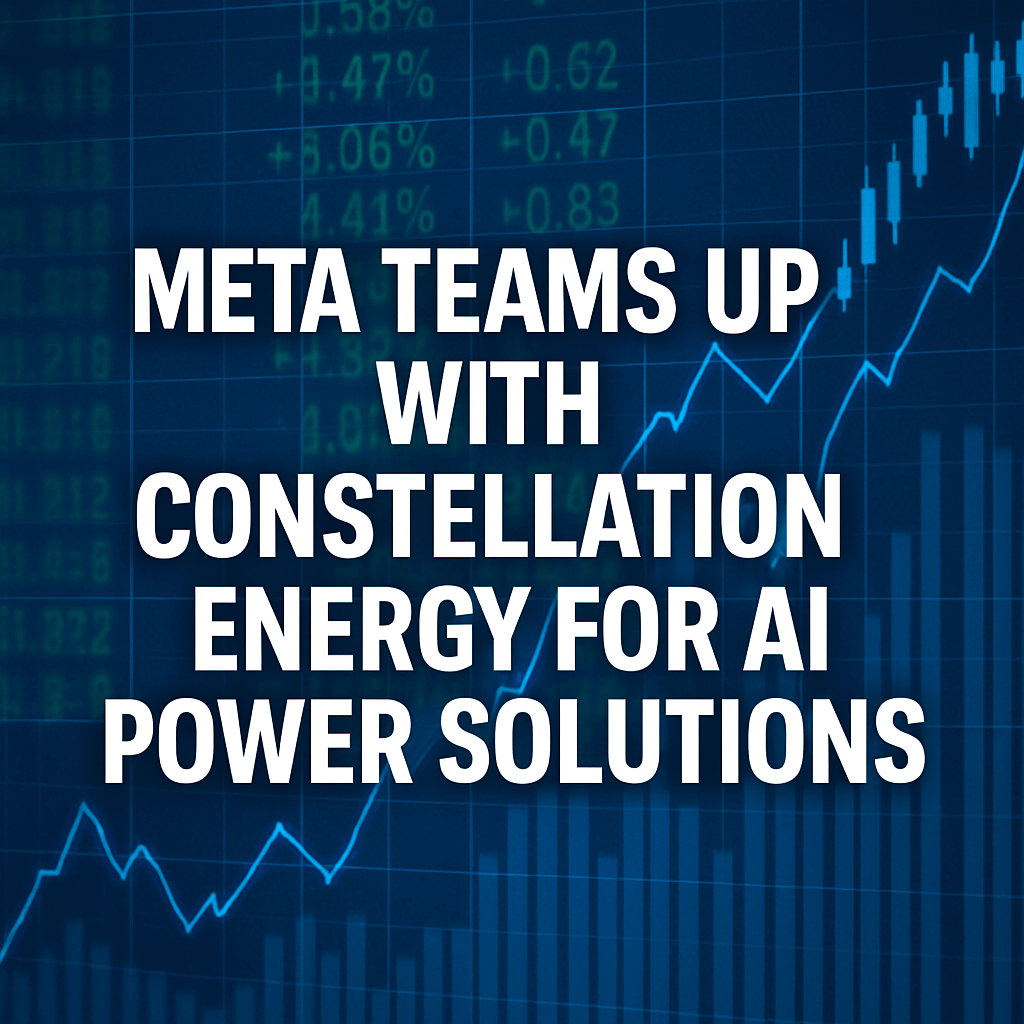Meta Teams Up with Constellation Energy for AI Power Solutions

In a significant move to bolster its energy resources for artificial intelligence (AI) development, Meta Platforms, Inc. has recently entered a 20-year agreement with Constellation Energy to revive an idle nuclear power plant in Illinois. This partnership underscores Meta’s commitment to preparing for the substantial energy demands that AI applications are expected to generate in the coming years.
The Energy Demands of AI
AI technologies, particularly those based on generative models like Meta’s Llama, require considerable computational resources. The foundational phase, known as training or pretraining, involves extensive processing that draws from vast datasets.
The computational needs are often satisfied by specialized hardware, particularly Graphics Processing Units (GPUs), capable of managing numerous calculations in parallel. These advanced computing requirements are not only a strain on power supplies but also result in significant heat generation. Consequently, efficient cooling systems—often reliant on additional energy—are imperative for maintaining optimal operational conditions in data centers.
Current Energy Sources and Future Outlook
Despite the promising potential of nuclear energy, AI firms, including Meta, still primarily depend on fossil fuels for their operations. A recent report from the International Energy Agency (IEA) highlighted that most data centers in the United States still source electricity predominantly from natural gas and, to a lesser extent, coal. In contrast, nuclear energy accounts for approximately 15% of data center power consumption in the U.S., while renewables such as solar and wind contribute around 24%.
The agreement with Constellation Energy aligns with a broader trend observed among tech giants. Companies like Amazon, Google, and Microsoft have also explored stable and sustainable energy sources to amplify their AI capabilities. However, the time frame for nuclear energy to meaningfully satisfy the tech sector’s burgeoning appetite for electricity remains uncertain and will likely take years to materialize.
The Role of Natural Gas in Meta’s Energy Strategy
While the long-term strategy leans towards nuclear power, Meta’s immediate energy needs are being addressed through natural gas. Entergy, one of the largest utility providers in the United States, is fast-tracking the development of gas-fired power plants in Louisiana to service a large-scale data center complex planned by Meta. This indicates a transitional phase where the tech industry remains reliant on fossil fuels despite clear intentions to shift towards greener alternatives in the future.
The Geopolitical Dimension of Energy Supply
Geopolitics plays a pivotal role in shaping the energy landscape for AI firms. France has set a benchmark by generating about 75% of its electricity from nuclear power, positioning itself as a favorable locale for AI development. During an AI summit hosted in Paris, President Emmanuel Macron articulated a vision in which nuclear energy could eliminate the need for extensive fossil fuel extraction, coining the phrase “plug baby plug.”
In contrast, the U.S. is grappling with energy supply chain vulnerabilities, particularly in light of the rising demand for AI technologies. A U.S. Department of Energy report earlier this year suggested that the electricity required for data centers in the United States could double or even triple by 2028, potentially consuming up to 12% of the nation’s total electricity output.
Future Prospects: Can Nuclear Meet AI Demand?
Experts anticipate that the accelerating demand for AI will necessitate a seismic shift in energy sourcing. While nuclear energy presents a clean alternative, integrating this form of power into the established infrastructure is fraught with challenges, including regulatory hurdles, safety concerns, and long lead times for plant construction and refurbishment.
Transitioning towards renewable energy sources, including solar, wind, and nuclear, is essential for curbing emissions associated with traditional fossil fuel reliance. However, a comprehensive approach combining multiple energy types may be necessary to meet the rapid growth of the AI sector sustainably.
Conclusion
The partnership between Meta and Constellation Energy signals a forward-looking strategy amid the pressing need for sustainable energy solutions in the tech industry. However, the landscape remains complex, requiring not only innovation in energy generation but also a thoughtful transition away from fossil fuel dependency.